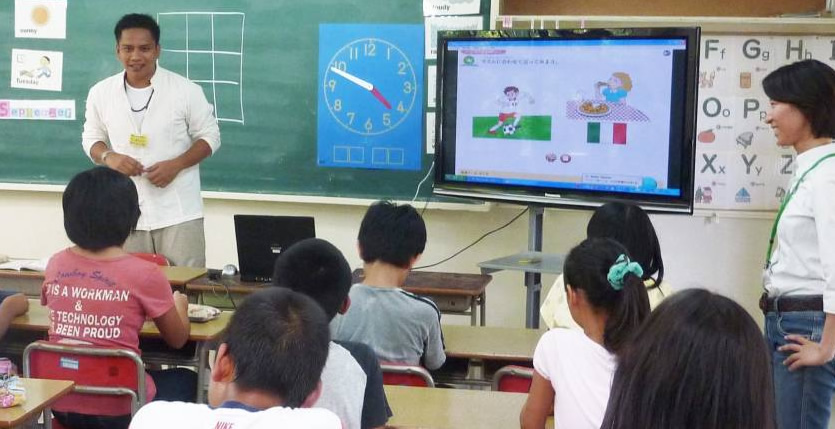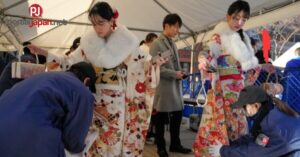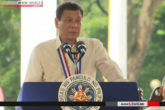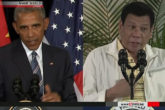
The Japanese school system’s English-teaching regimen will undergo a major revamp in the near future as the government tries to nurture more worldly talent in an age of globalization.
The biggest transformation is expected in public elementary schools, where English will be taught as a formal subject for the first time, in conjunction with designated textbooks and formal grades. The change is scheduled to take place in 2020, after a two-year transition period.
Will the revision raise Japan’s ability to communicate in English? Here are some questions and answers on the issue.
What are the main changes?
In 2020, English will become a mandatory subject for fifth- and sixth-graders, instead of a “foreign language activity” class where children are only expected to experiment with English by speaking and listening.
This will double the annual number of English classroom hours to 70 from the current 35, and see reading and writing taught for the first time, according to a draft guideline released in August.
Along with that change, the foreign language activity classes will become mandatory for third- and fourth-graders instead.
Why is the government making English a formal subject?
The decision was made because the current system failed to achieve the government’s target of making students fluent enough to debate or negotiate in English.
Given the rapid globalization of the economy, the education ministry faced the need to upgrade the nation’s English skills. But discussions on the issue through the 1990s found many people opposed to teaching English in elementary school because they thought it would confuse children who hadn’t even learned their mother tongue yet.
In 2002, the ministry introduced English classes in elementary school not as a formal subject, but as an option. In 2011, this had been turned into the foreign language activity class, with the main focus on giving fifth- and sixth-graders a chance to get familiar with English in a more casual environment, such as by singing or playing games.
Despite these efforts, Japan is among Asia’s worst performers on the TOEFL (Test of English as a Foreign Language).
According to the Education Testing Service, which administers the exam, out of 30 Asian countries with TOEFL examinees in 2015, Japan ranked fifth from the bottom, ahead of Afghanistan, Cambodia, Tajikistan and Laos.
South Korea, where English became a mandatory subject in elementary school in 1997, ranked 10th. China, which followed suit in 2001, ranked 17th.
As for speaking ability, Japan was at the bottom of the list.
Will the change improve Japan’s English proficiency?
Observers say that the quality of current language classes varies among schools, and that more children end up going to so-called cram schools to fill the gap.
The formal introduction of English classes is expected to narrow the gap because they will all use the same textbooks. The government also hopes the change will make it easier to pursue higher-level classes in junior high school.
Many parents are behind the change.
According to a nationwide poll by education company Benesse Holdings Inc. last year on 1,565 parents of fifth- and sixth-graders, about 60 percent were dissatisfied with the foreign language activity classes. Roughly the same percentage said they were not even aware of what was being taught in them.
Are there hurdles to making the new system work?
Yes. There is a lack of skilled English teachers, observers say.
Under the current system, most municipalities hire native English speakers or highly competent Japanese to support their elementary school staff, with some of the assistants playing leading roles. But when English becomes a formal subject in 2020, it is apparently the main teacher who will be running the classes.
According to an education ministry survey in fiscal 2015, only 4.9 percent of elementary school teachers were licensed to teach English. Many didn’t even learn how to teach the subject because it wasn’t necessary to acquire their teaching licenses.
The government started providing special training in fiscal 2014 to develop about 1,000 expert English teachers by fiscal 2018 who can train fellow teachers.
But observers say that number is far from sufficient, considering that about 144,000 English teachers are expected to be needed by 2020.
Haruo Erikawa, a professor of English at Wakayama University, said if the government is serious about beefing up elementary school English, it should use its budget to conduct thorough teacher training and secure a sufficient number.
He also expressed concern that more training will only make things tougher for Japan’s already overwhelmed teachers.
“In English education, the hardest part is teaching children who don’t have much knowledge of the language,” he said. “Without sufficient training, we can’t expect teachers to offer high-quality English education.”
Source and image: Japan Times
















Join the Conversation